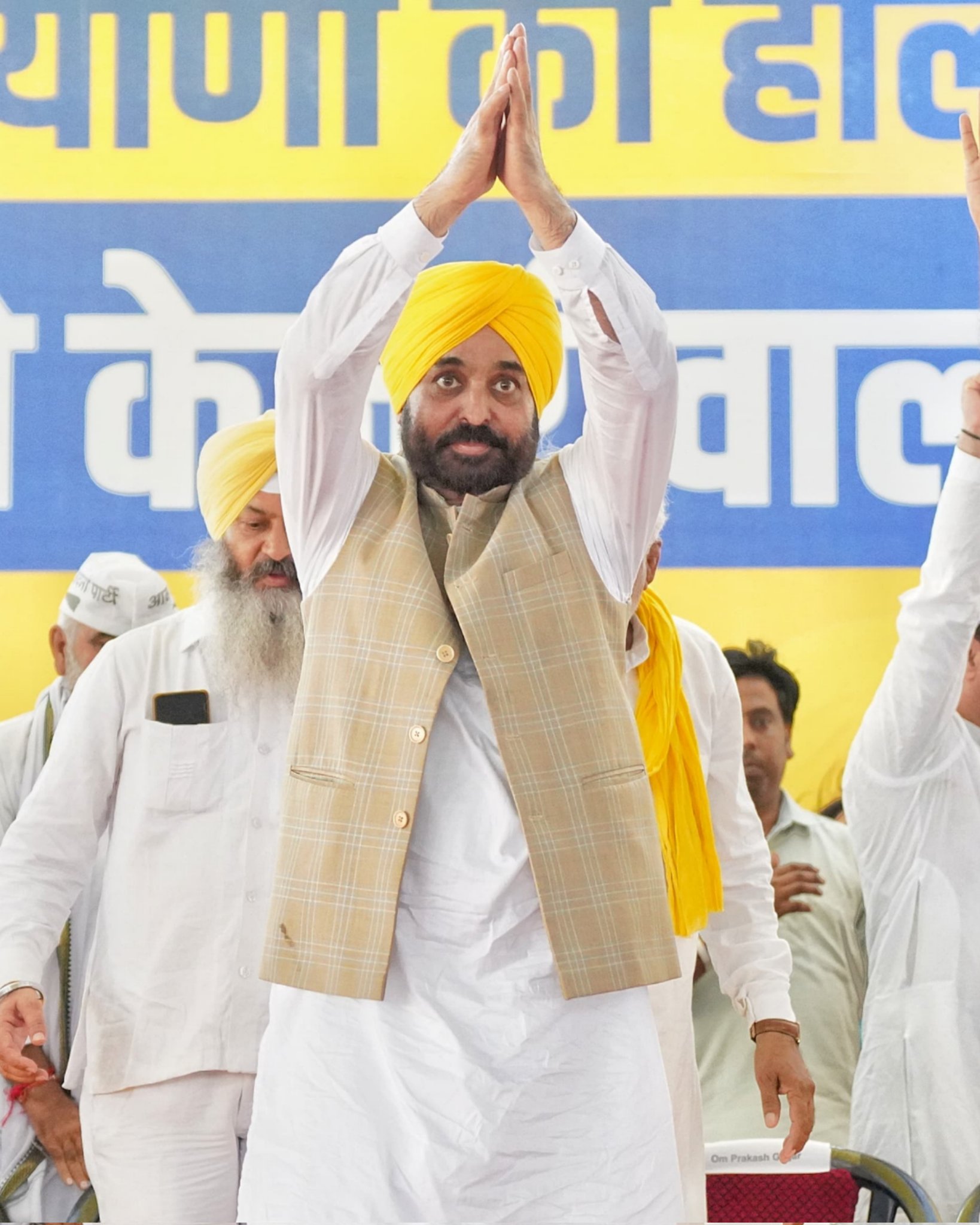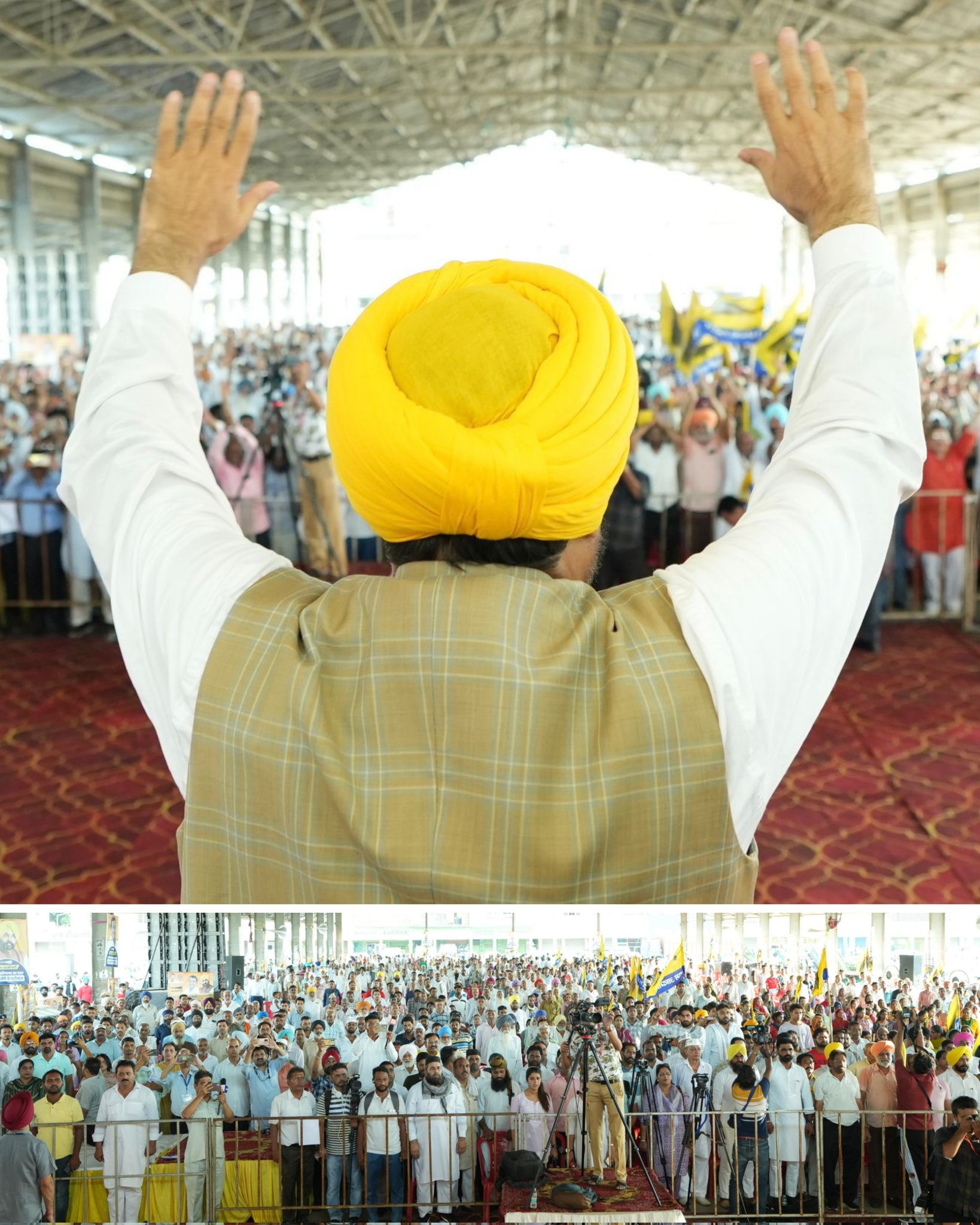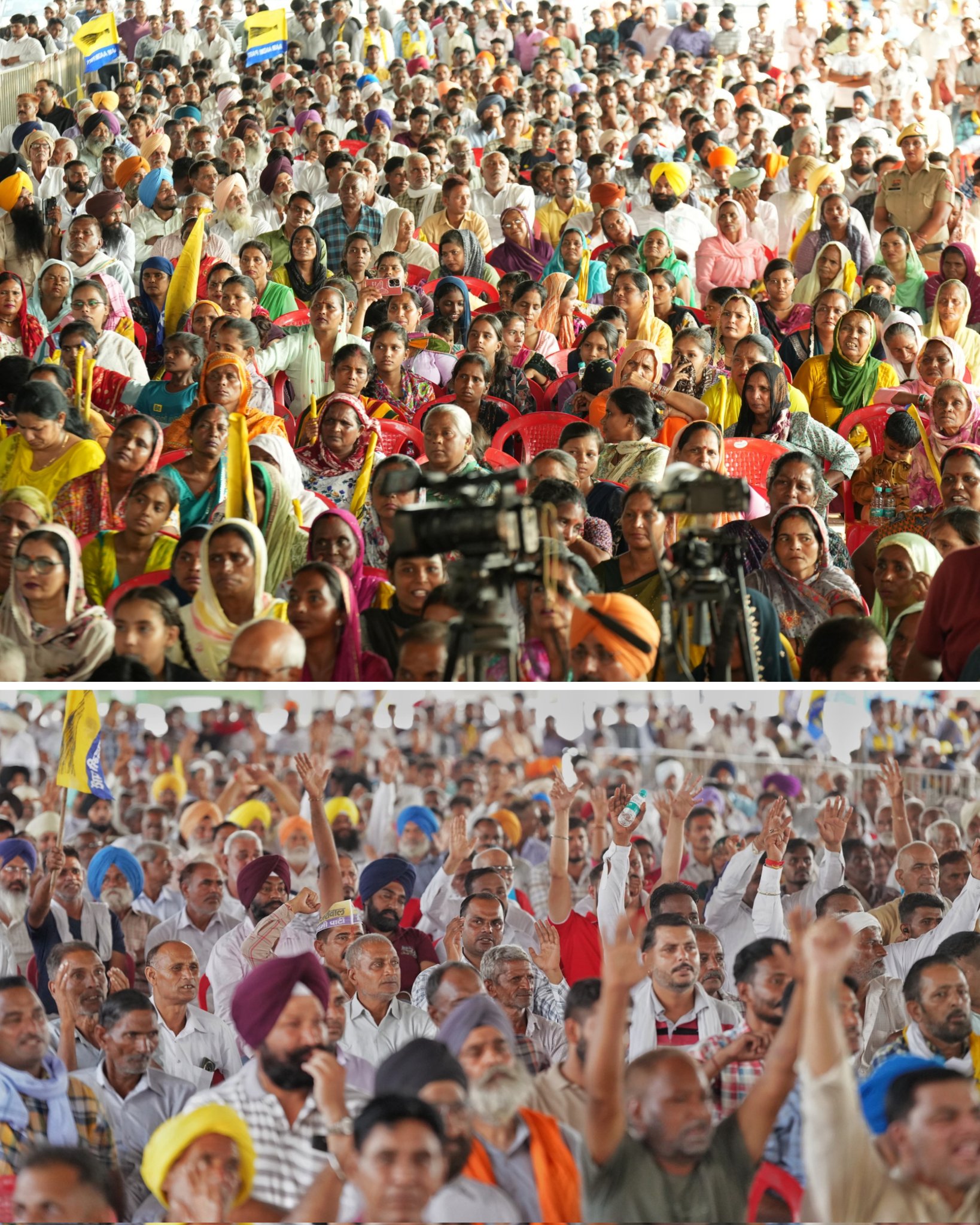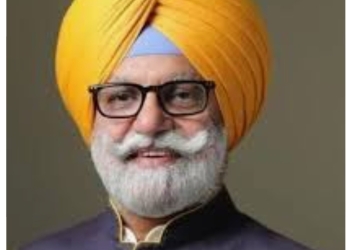Town Hall Event with Traders by Aam Aadmi Party in Panipat
- Punjab Chief Minister Sardar Bhagwant Mann Listens to Issues and Suggestions of Haryana’s businessmen
- Punjab Provides Electricity at ₹5.5 per Unit to the industry, While Haryana Charges ₹10 per Unit: Bhagwant Mann
- Businessmen Used to Give Red Pouches to Parties During Elections to Avoid Harassment: Bhagwant Mann
- Arvind Kejriwal Reduced VAT by 7% from 12.5%, Resulting in a ₹2000 Crore Increase in Revenue: Bhagwant Mann
- Aam Aadmi Party Implemented Color-Coded Stamp Papers for Industry, Housing, and Agriculture in Punjab: Bhagwant Mann
- Governments Treating Traders as Thieves is Wrong: Anurag Dhanda
- Panipat is the Largest Industrial Hub but Traders Face Toll Taxes everywhere around it: Anurag Dhanda
- Traders Struggle to Provide Adequate Facilities to Employees and Maintain Livelihoods: Anurag Dhanda

Panipat, September 1 (WISHAVWARTA):-Punjab Chief Minister Sardar Bhagwant Mann and senior state vice-president Haryana Anurag Dhanda shared their views with traders at a Town Hall event in Panipat on Sunday. During the event, traders asked Bhagwant Mann questions, shared their problems, and gave suggestions. Traders inquired about simplifying the NOC process in Punjab, addressing high electricity rates and frequent power cuts in Haryana affecting the industry, standardizing GST tax slabs for textiles, and simplifying the GST portal. They also asked what measures are being taken in Punjab to support small and medium enterprises and raised concerns about high-level corruption in Haryana affecting single-window systems and various business services.
Chief Minister Sardar Bhagwant Mann stated that this was not a political rally. The issues faced by traders are not unique to Haryana; similar problems were previously seen in Punjab and Delhi and are now present in Rajasthan and Madhya Pradesh as well. The industry is considered the government’s biggest revenue source but is often criticized and labeled unfairly. Despite providing employment to many, the industry is rarely given proper attention.
He mentioned that he wondered why traders bring red bags with money to political parties during elections. The money symbolizes prosperity, but traders don’t like the parties’ agendas. They bring the money merely to avoid harassment if the party wins. Governments should not harass but should facilitate. When he invited Punjab’s traders, they revealed so many problems that despite the existence of a single-window system, there are multiple windows within it. Consequently, Punjab implemented a single-window single-pen system, aiming for work to start and end with the same pen number. Policies were formulated based on traders’ suggestions.
He noted that the Aam Aadmi Party provides free electricity in Delhi and Punjab, not distinguishing between different types of cards. In Punjab, 90% of households receive zero electricity bills. He questioned why this couldn’t be done in Haryana, highlighting that solar power is available at ₹2.54 per unit in the market. Punjab has signed an agreement for 1,100 megawatts of solar power. Punjab has five thermal plants—two government-owned and three private. Despite having a coal mine in Jharkhand that produces 3 million metric tons of coal annually, a central rule requires the coal to be used only in government thermal plants. The government bought a 540-megawatt thermal plant, an unprecedented move in India where governments usually sell, not buy, private sector assets. Now, Punjab has three government thermal plants, providing electricity at ₹5.50 per unit. This plant will be used to provide cheaper electricity, while Haryana’s rates are over ₹10 per unit. He criticized the policies of current governments, which charge for unused electricity and made NOC for fire safety valid for three years in Punjab.

He also described a new Aam Aadmi Party initiative involving color-coded stamp papers. Traders need not purchase land but can propose to buy and sell it. The land’s details are submitted on the investment portal or Chandigarh’s investment office. A team from fire safety, pollution control, CLU, and forest departments inspects the land within 15 days. If all requirements are met, a green stamp paper is issued, covering all fees. The party has designated red stamps for housing and yellow for agriculture. The Aam Aadmi Party promises to complete processes in 15 days with one pen. If it can be done in Delhi and Punjab, why not in Haryana?
He asserted that the Aam Aadmi Party’s intentions toward traders are clear. The party resolved the VAT OTS issue in Punjab, benefiting the government by hundreds of crores. He criticized the BJP for its limited concern for traders, contrasting it with the Aam Aadmi Party’s rule, which mandates that 25% of CSR funds be used for industrial and sewage development. He urged Manohar Lal Khattar to improve industries, accusing the BJP of neglecting public concerns.
He emphasized the need for good people in politics to improve the quality of laws. Arvind Kejriwal’s creation of the Aam Aadmi Party aims to gather good people. Congress and BJP have colluded, leaving the public to suffer. A new story needs to be written in Haryana like in Delhi and Punjab.
Anurag Dhanda, senior state vice-president, highlighted that the purpose of the discussion was to demonstrate the Aam Aadmi Party’s approach to creating a favorable environment for traders and its plans for Haryana. Two and a half years ago, industries were leaving Punjab due to inadequate conditions. However, in just two and a half years, the environment has improved significantly, attracting new industries and traders eager to invest in Punjab.

He stressed that the key question is whether the government genuinely wants traders to operate freely. When the Aam Aadmi Party came to power in Delhi, traders faced numerous obstacles. The party’s promise to eliminate inspector raj led to a significant increase in revenue by 2,000 crores after removing trade inspections. He criticized the current regime for imposing heavy toll taxes on traders, who face increased costs and inadequate facilities.






















